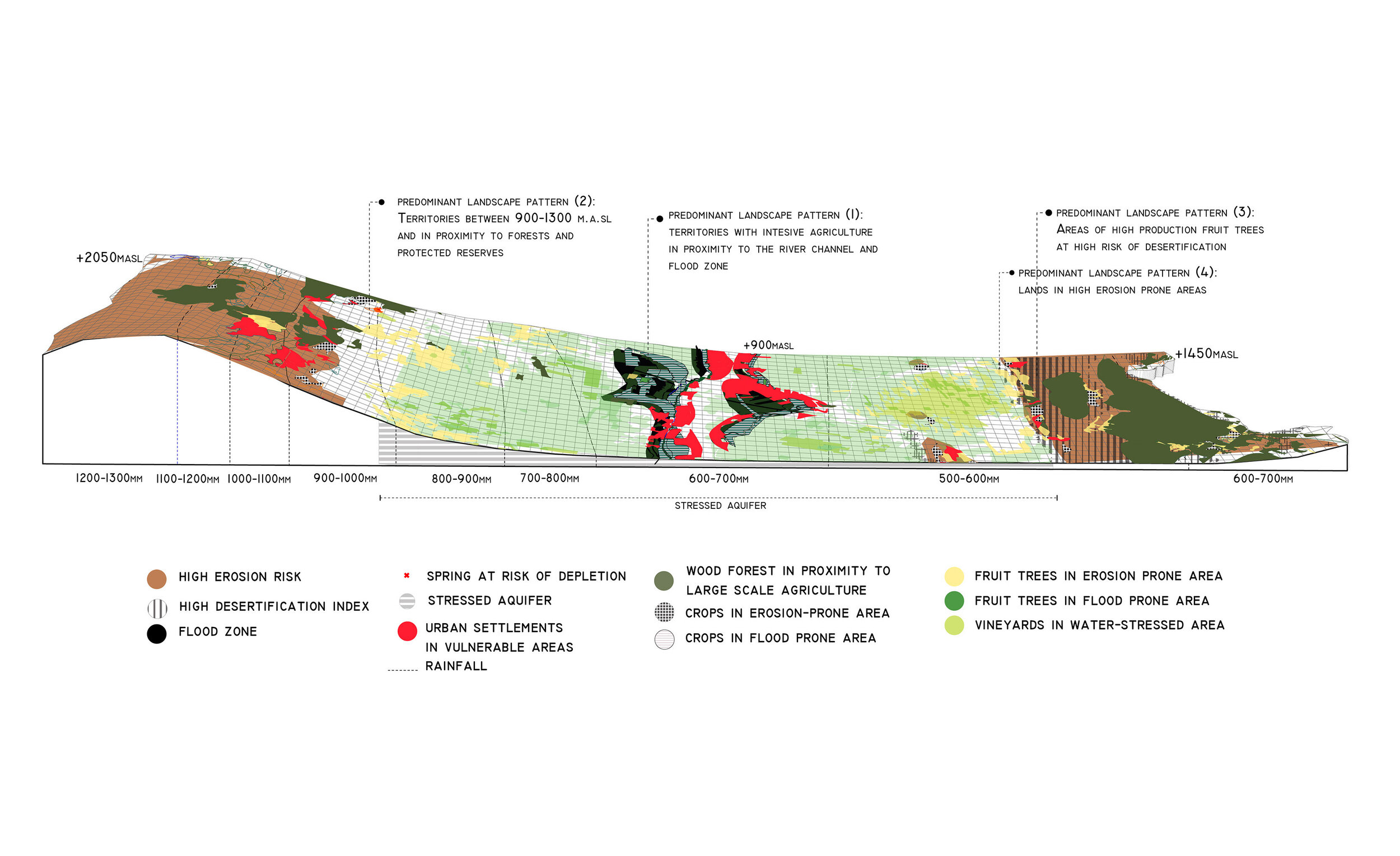
landscape planning
the Litany River Watershed, the largest in Lebanon and a major economic channel, is debilitated by the repercussions of recurrent wars. its resources, soils and water vital for agricultural production, are threatened by climate change, refugee influx, and by the absence of national regulatory policies. yet, the basin’s post-war de-mined territories stand as untapped opportunities. this design research proposes territorial ecological planning as a methodology to represent and analyze geo-spatial data, evaluate, and re-purpose abandoned private post-militarized landscapes as alternative means to restore productive grounds as socio-economic generators at watershed scale. accordingly, this study highlights the role of the landscape architect in politically-contested landscapes, as the mediator between socio- ecological agendas, geo-spatial research centers, and local stakeholders through strategies for the socio-economic and ecological recovery of the territory.


